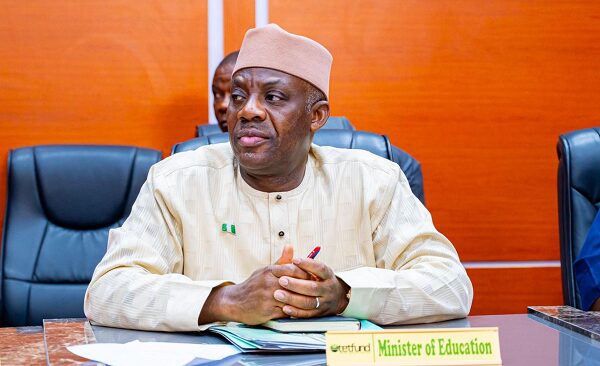The Federal Government has announced plans to eliminate the use of chalkboards in Nigerian schools by 2027, replacing them with interactive smart boards in line with global education standards.
Minister of Education, Dr. Olatunji Alausa, disclosed this during a ministerial roundtable meeting in Abuja, reaffirming President Bola Ahmed Tinubu’s administration’s commitment to bridging the digital divide in the education sector.
According to the Minister, the government aims to ensure that every school—urban and rural alike—has access to modern digital learning tools that will enhance teaching and learning outcomes.
“Our goal is that by 2027, every school in Nigeria will have a smart board. This is how we can deliver high-quality education to every child, regardless of their location or background,” Alausa said.
Annual School Census to Go Fully Digital by 2026
Dr. Alausa also revealed that the annual school census would be completely digitalised starting from 2026, to allow for real-time data collection and effective policy formulation.
He noted that over 60,000 learning tablets have already been distributed to pupils in Adamawa, Oyo, and Katsina States under the Airtech (Amazon Web Services) and BESDA programmes, with another 30,000 devices expected to be distributed soon.
Tackling Dropout Crisis Through Data-Driven Education
Expressing concern over Nigeria’s high school dropout rate, the Minister said data from the Nigeria Education Management Information System (NEMIS) revealed that 24 million children who began primary school failed to progress to senior secondary level.
“From the 21 states that have uploaded their data, we have about 30 million pupils in primary schools. But by senior secondary level, only six million remain. It’s alarming,” he said.
Alausa stated that the government is introducing evidence-based interventions to address this trend, adding that each pupil’s biometric data is now being captured on a digital tracking platform to enable effective monitoring and planning.
“It’s no longer manual. Paper will be taken out completely,” he added, noting that the Ministry also plans to integrate data from WAEC and JAMB into the digital system.
Digital Transformation of Education Sector
The Minister commended the United Nations Children’s Fund (UNICEF) for its technical assistance and thanked President Tinubu for his continued financial and political support for the education reforms.
He also highlighted that the Universal Basic Education Commission (UBEC) has fully adopted technology in its operations and classroom delivery across public schools.
“The deployment of interactive smart boards and digital tools will create dynamic, engaging classrooms and empower teachers to integrate multimedia and real-time learning into their lessons,” Alausa said.
The digital transformation, he added, represents a paradigm shift in Nigeria’s education system, promoting inclusion, innovation, and improved learning outcomes for millions of schoolchildren nationwide.
